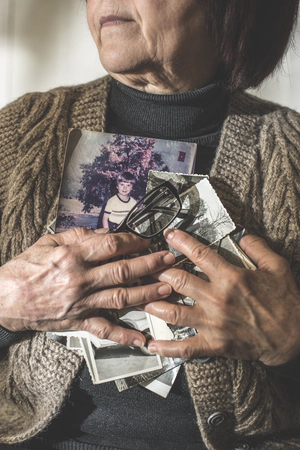How Addiction Affects Families
Addiction’s devastating impact extends beyond the individual, disrupting families, breaking trust, and devastating the emotional well-being of the whole group.

When a loved one becomes severely addicted, this situation often tears the hearts right out of the whole family. Everyone wants to help, but too often, the addicted person refuses any offer of drug rehab.
As the addiction progresses, money and valuables very often go missing. If the addicted person works in a family business, money will be missing from the business. While it may break their hearts, parents or spouses of the addicted person are often forced to change locks, close bank accounts, cancel credit cards, and take other actions to protect themselves. The individual himself or herself may be missing at certain times, all the time, or for a very long time.
And the lies. Addicted people routinely lie. They feel they must. They are driven strongly to get more drugs and prevent the withdrawal sickness they know will follow if they fail. Therefore, they protect themselves from anyone trying to stop them from getting their next drink, a bag of heroin, cocaine, methamphetamine, ecstasy, or whatever their drug of choice is. That necessity to protect their drug habit means that they lie and betray trust.
Those Who Are Addicted Also Refuse to Get Help or Go to Drug Rehab

The family trying to help an addicted person can’t understand why the addicted person refuses to go to rehab or accept any other help. Their loved one will often claim:
- “I’m not addicted. I can quit when I want.”
- “I’m using less drugs/drinking less these days, so I’m okay.”
- “I don’t use every day.”
- “I’m not hurting anyone but myself.”
- “I’m only drinking/using drugs to get through the day.”
- “It’s just because I’m under so much stress.”
- “It’s none of your business what I do.”
Any excuse will do if it enables that individual to avoid the withdrawal sickness they know is ahead if they quit.
The fact is that it’s really like the drugs are doing the talking and decision-making, not the person you know and love. The drugs are in control of your loved one’s life, thinking, and choices.
The Emotional Impact of Addiction on Families
The emotional damage done to families is often brutal. Parents and spouses, if they know about the addiction, lie awake at night, fearful they will get a phone call telling them about a fatal overdose. They worry endlessly: How could they have failed this badly? What should they do now? There’s no instruction manual for this phase of life, telling a parent or spouse exactly how to proceed.
If their loved one shows up for a family event like Thanksgiving, the stress can be worse instead of better. Mom may spend the whole dinner crying. The addicted person may dope off at the table, leave the room to smoke or shoot up, or pick a fight with other family members. That’s why most addicted people skip family events, even the important ones.
Social Isolation May Affect More Than the Addicted Person

The pain of having an addicted loved one can spread farther than the family itself. The trauma is so deep that it’s hard for anyone to talk about it. Parents, spouses, siblings, and others may withdraw socially during this time. Holidays that would otherwise be spent with friends and extended family are avoided. There is so much stigma attached to addiction, and most people don’t feel they can share this intimate pain.
When a loved one is severely addicted, the whole family is liable to feel like they are living under a dark cloud for years. Parents may wonder, “It is my fault that my child is addicted? Why isn’t my child successful like other people are?”
A spouse may suffer so much emotional abuse and turmoil because of the addiction that they struggle to just keep their own life going. The whole family shares in the pain and trauma of the addicted person. There is plenty of pain and trauma to go around.
Young children in the household may suffer from emotional and financial neglect. That’s because all the household’s financial and emotional resources are directed at trying to save the addicted person’s life.
How Many Families Are Suffering from Someone’s Addiction?
The number of American families struggling with this devastating problem is appalling. Here are the numbers of individuals with substance use disorders related to the following substances:
- Cocaine: 1.4 million
- Methamphetamine: 1.8 million
- Heroin: 900,000
- Marijuana: 19 million
- Pain relievers: 5.6 million
- Alcohol: 29.5 million
For nearly every addicted person, there are multiple loved ones struggling with the pain and loss of that person’s addiction.
Finding Drug Rehab for a Loved One
Solving the problem can be incredibly challenging. Some people go to one rehab after another. Too many people completing a 30-day program relapse as soon as they walk out the door. Families can bankrupt themselves by sending a beloved family member to five, ten, and even more rehab programs.
There are many choices for recovery, including outpatient, residential, short-term, and long-term. An assistant professor of emergency medicine at Northwestern University Feinberg School of Medicine provided guidance on the best kind of program to choose:
“Residential treatment…is one of the best treatments for those with severe substance use,” wrote assistant professor Lindsay Allen. When you choose a residential rehab with a track record of success, your loved one has 24-hour support and supervision.
For so many addicted people, residential rehab is the only thing that will keep them on the straight and narrow until they overcome the brutal cravings plaguing them. It’s vital for them also to get life skills training so they know how to make sober choices in the future. At that point, they can begin to build new, sober lives for themselves.
Don’t Give Up on Your Addicted Loved One

You will encounter people who tell you to use “tough love” to send your loved one out on the streets unless they do what you tell them. You may talk to people who tell you that your loved one can’t be saved, that you must “let go.” Someone might assure you that your loved one must “hit rock bottom” before they can be helped.
You know in your heart that you will do anything to save this person that you raised or that you loved and married. There is a solution to addiction that can return the person you know and love. You may need an intervention to get through to the addicted person, but that is what professional interventionists are for. They know how to change an addicted person’s mind so they realize that they need help. Right now. Then, the interventionist walks them through the front doors of the rehab facility the same day or the next day if at all possible.
If someone you care about is addicted, take action now. This is a problem that will not get better without the right help.
About the Narconon Drug Rehabilitation Program
Many families looking for drug rehab are looking for something different than the revolving door of typical rehabs. They are tired of their loved ones completing rehab only to return to rehab weeks later. The Narconon drug and alcohol rehab program not only addresses the debilitating effects of drug abuse on the mind and body but also resolves why a person turned to drugs in the first place.
The Precise Steps of the Narconon Program

In this long-term residential program, each person is guided through precise steps to prepare them for stable sobriety. A unique regimen utilizing vitamins, minerals, and time in a low-heat sauna rids the body of its burden of accumulated drug and alcohol toxins. Following this step, an innovative series of techniques helps each person move out of the past and into the present. Finally, life skills training gives each person the abilities they need to make sober decisions and enjoy productive lives.
The Narconon Program Is a Holistic Approach to Recovery
As a holistic program, this program addresses the whole person, not just one aspect of their addiction. No one at a Narconon center will ever be told that they have a permanent, incurable disease. They will never hear that they will be an addict for life.
Narconon is not a 28-day program or a Twelve Step program. There are never any substitute drugs used. At this rehab, experience has proven that it is possible to leave addiction behind in favor of a fully sober life. Learn why this drug-free program could be the last program your loved one ever needs.
Sources:
- “Stigma and Its Impact on Addiction.” NarcononUS.org, 2022. NarcononUS.org
- “2023 National Survey on Drug Use and Health.” Substance Abuse and Mental Health Services Administration, Table 5.1A. SAMHSA
- “The Addiction Treatment Gap Continues to Widen.” NarcononUS.org, 2023. NarcononUS.org







 ®
®